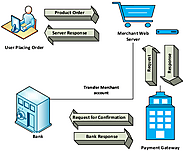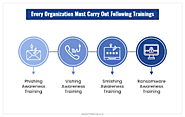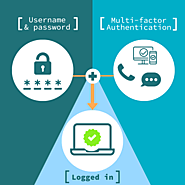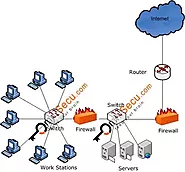-
About
- About Listly
- Community & Support
- Howto
- Chrome Extension
- Bookmarklet
- WordPress Plugin
- Listly Premium
- Privacy
- Terms
- DMCA Copyright
- © 2010-2024 Boomy Labs

 Allan Chou
Allan Chou
Listly by Allan Chou
The digital era has revolutionized the way we shop, making e-commerce a critical part of the global economy. With the increasing reliance on online shopping platforms, cybercriminals have been quick to exploit vulnerabilities in e-commerce systems. Cyberattacks can result in data breaches, financial losses, and reputational damage, which can be detrimental to e-commerce companies.

The foundation of any e-commerce business lies in secure payment processing. Ensuring the integrity of payment gateways is paramount to protect customers' sensitive financial data. Implement the latest encryption protocols such as Transport Layer Security (TLS) and Payment Card Industry Data Security Standard (PCI DSS) compliance to safeguard transactions from interception and tampering.

Conducting periodic security audits and vulnerability assessments is crucial in identifying weaknesses within the e-commerce infrastructure. These assessments can pinpoint potential entry points for cyber attackers and help prioritize areas that require immediate attention.

Human error is a significant factor in cyber breaches. Ensure that all employees undergo regular cybersecurity training to recognize and respond to potential threats effectively. Educate staff on the importance of strong password practices, social engineering awareness, and how to identify phishing attempts. Building a cybersecurity-conscious workforce can significantly reduce the chances of successful cyberattacks.

Implementing Multi-Factor Authentication (MFA) can add an extra layer of security to user accounts. By requiring users to provide additional verification, such as a one-time code sent to their mobile device, MFA prevents unauthorized access, even if login credentials are compromised. Encourage customers to enable MFA for their accounts to further safeguard their information.

E-commerce platforms and associated software often receive updates that address security vulnerabilities. Regularly update all software components, including operating systems, web servers, plugins, and content management systems, to mitigate potential risks. Cybercriminals actively seek out outdated and vulnerable systems to exploit, making patch management an essential aspect of cybersecurity.

A robust and secure network infrastructure is essential to protect an e-commerce company's sensitive data and transactions. Use firewalls, intrusion detection systems (IDS), and intrusion prevention systems (IPS) to monitor and block unauthorized access attempts. Encrypt data transmitted across the network to prevent interception and data theft.
